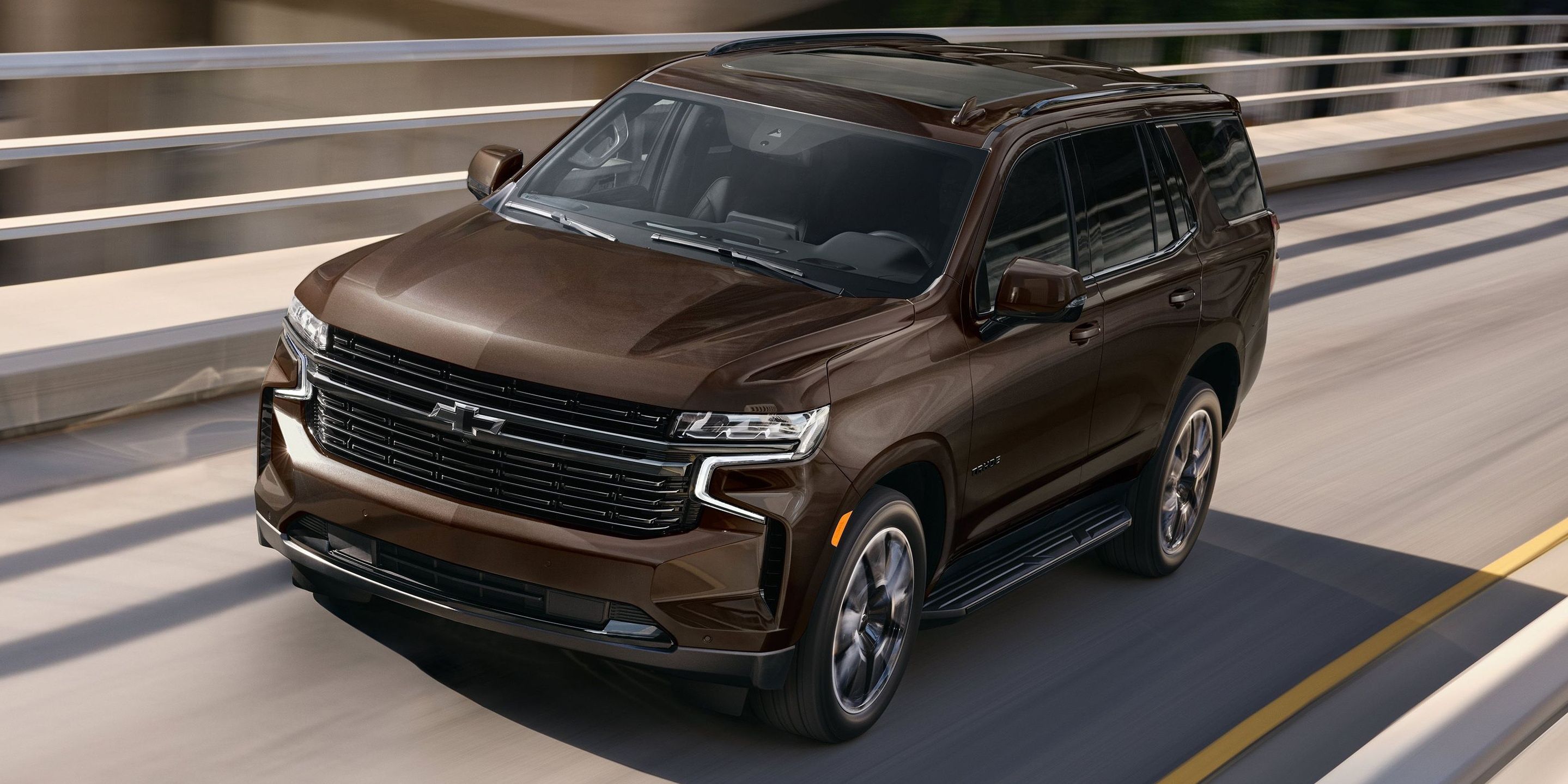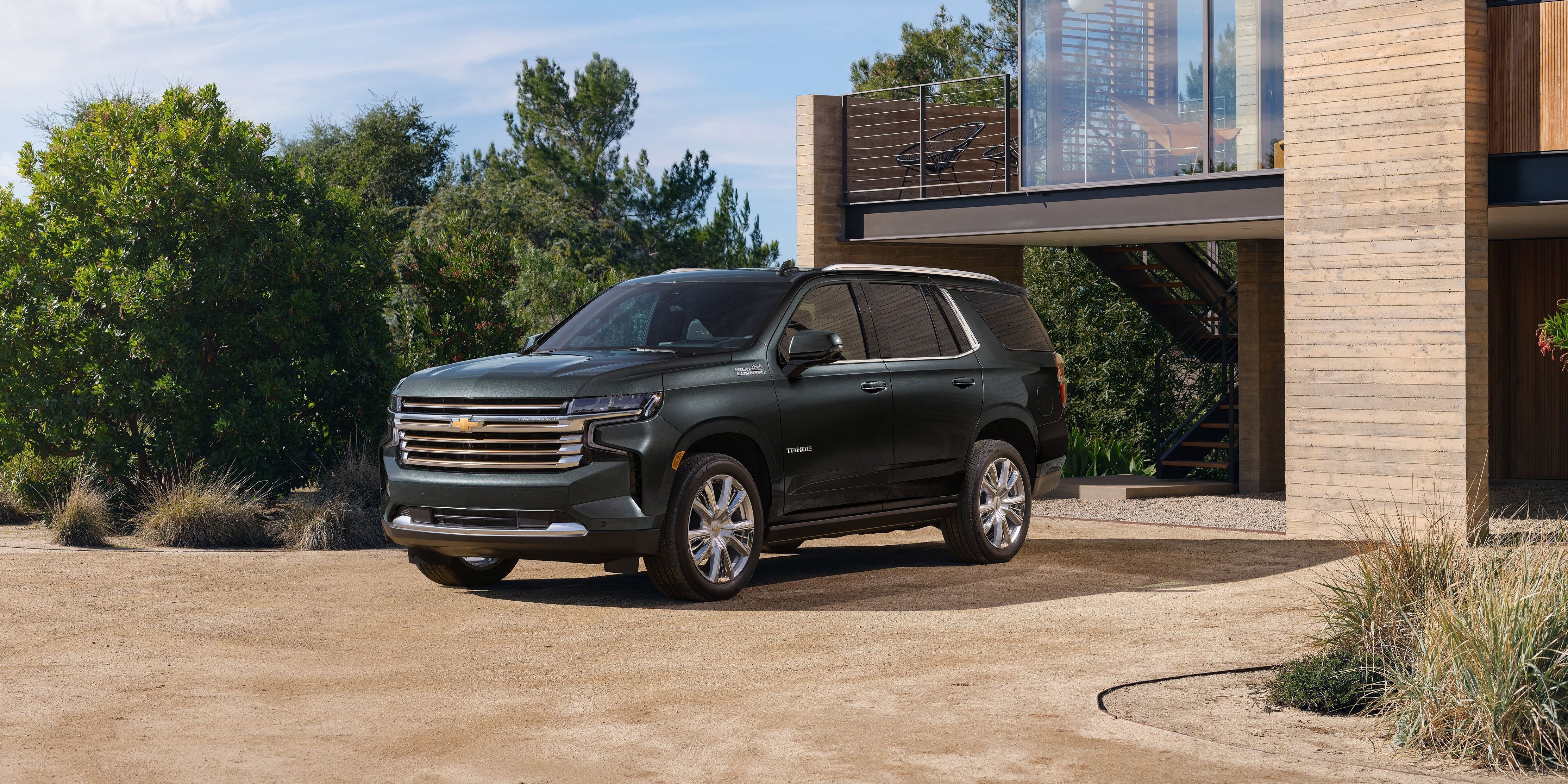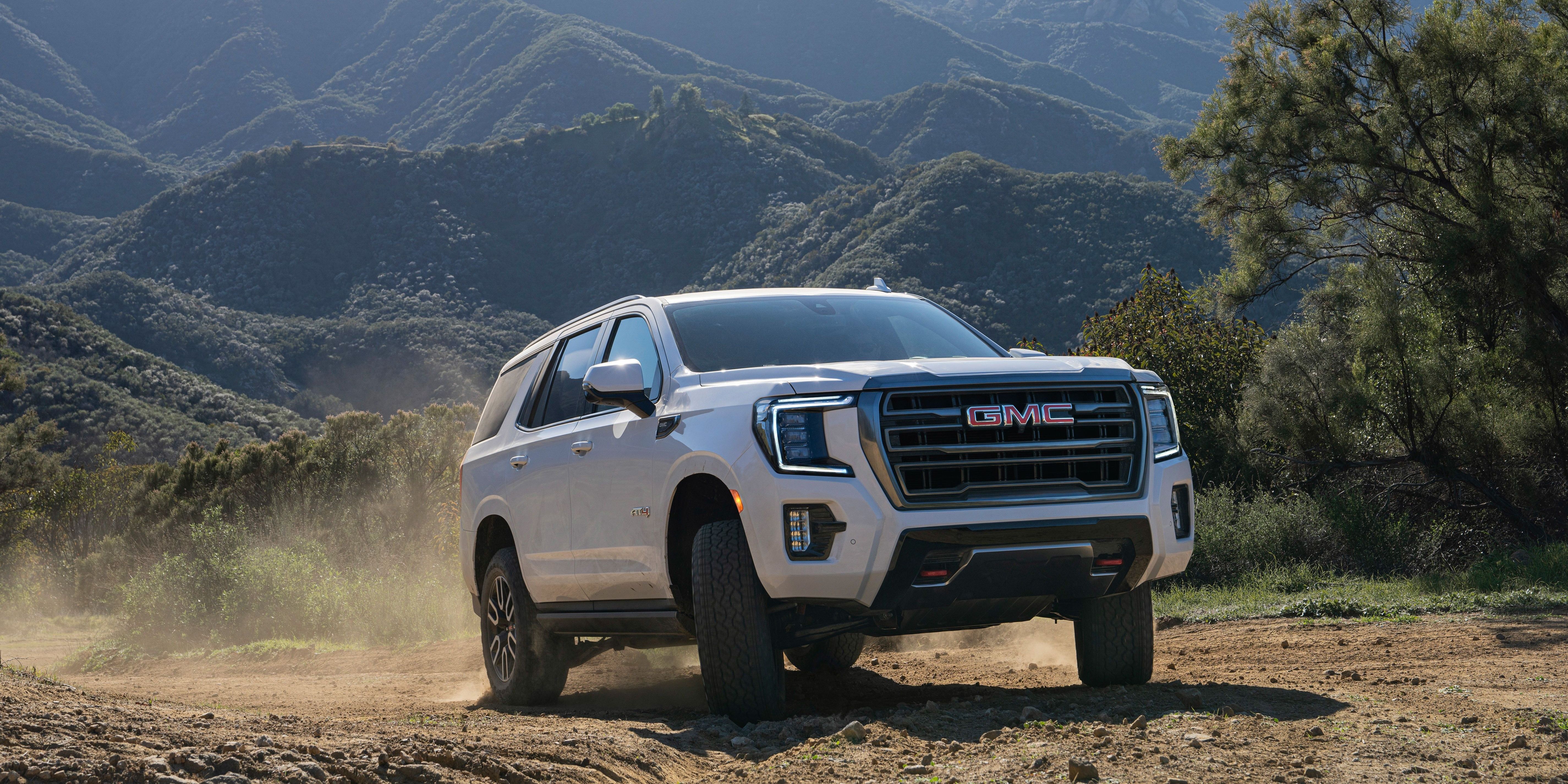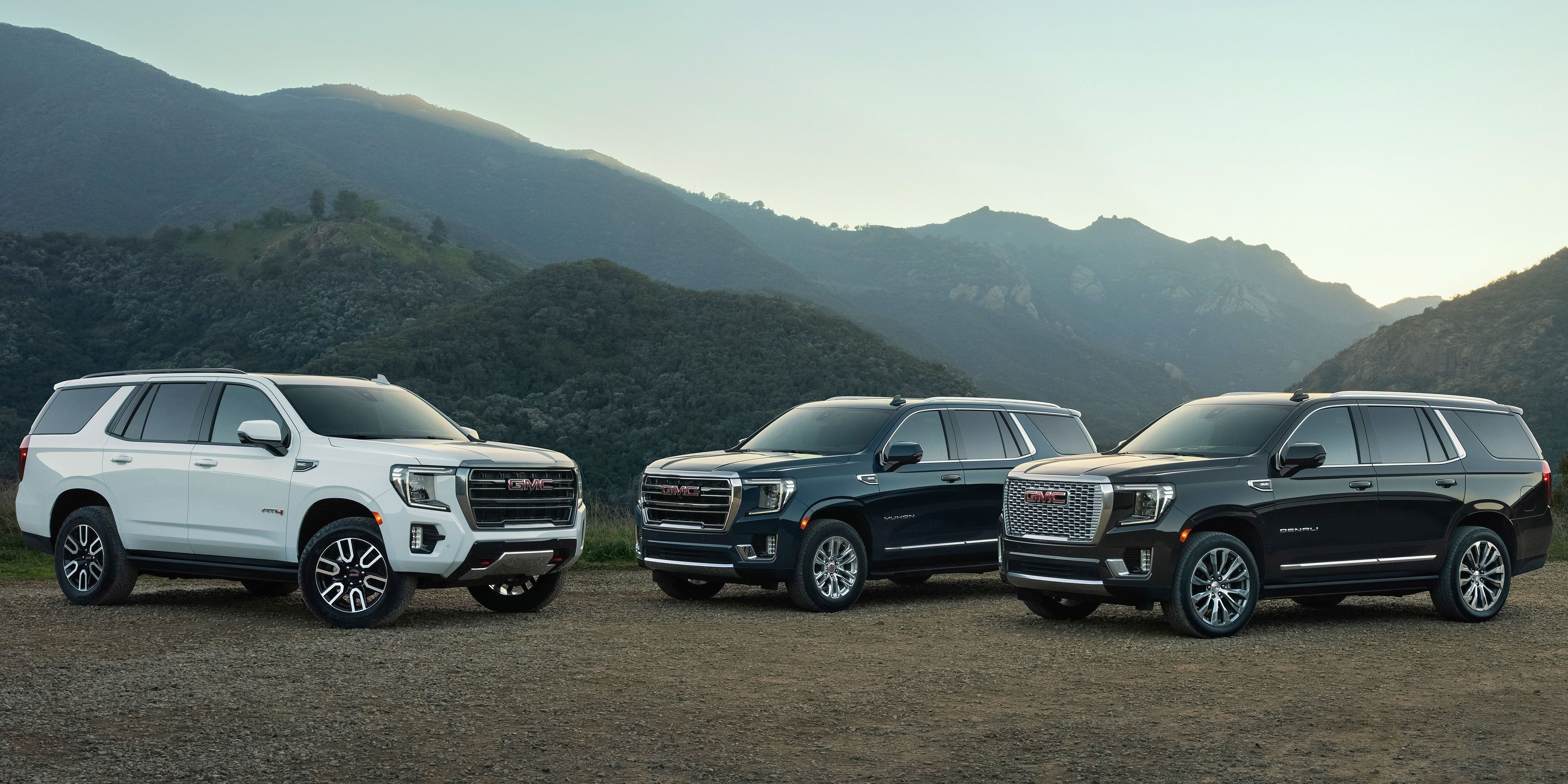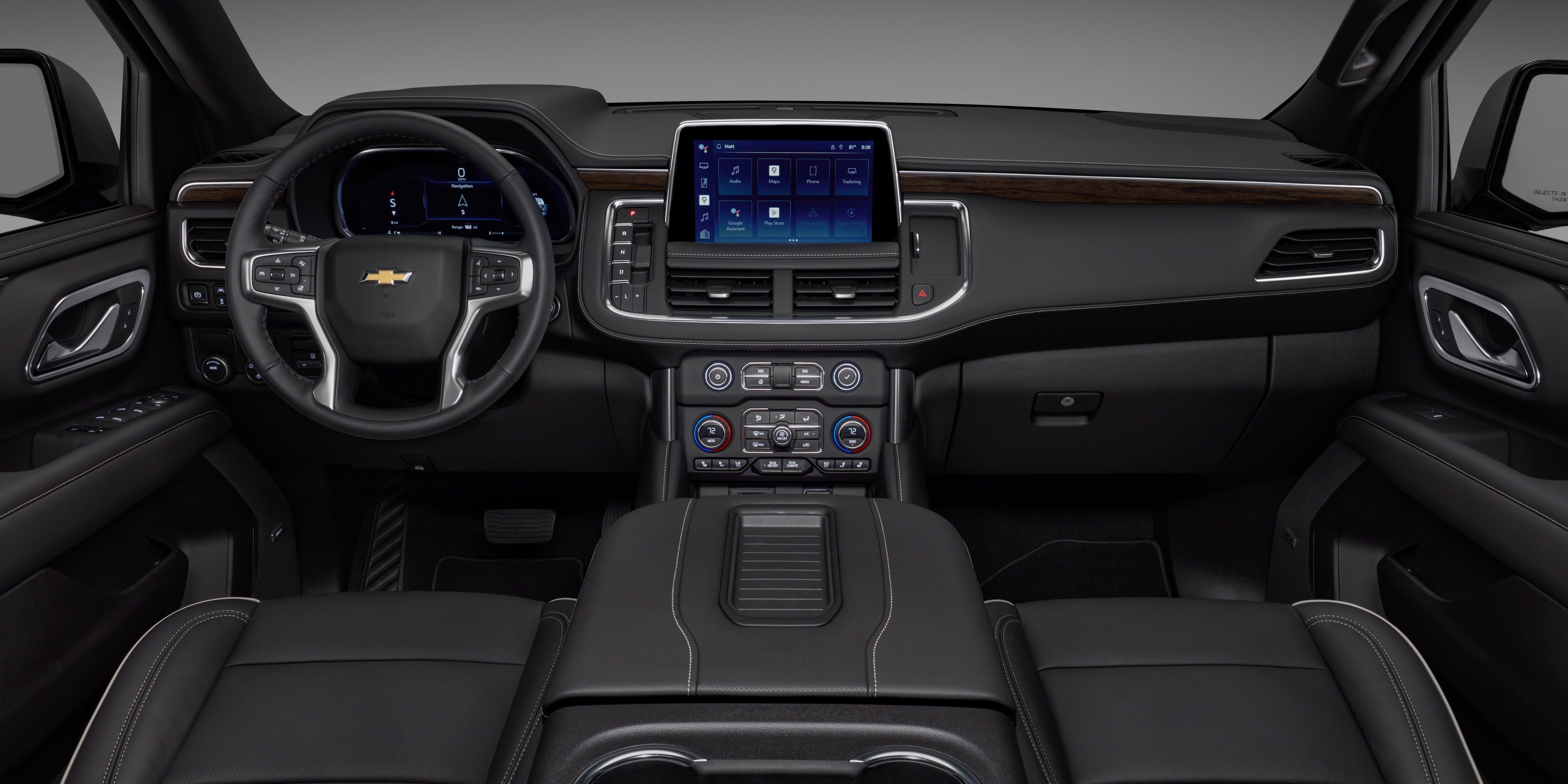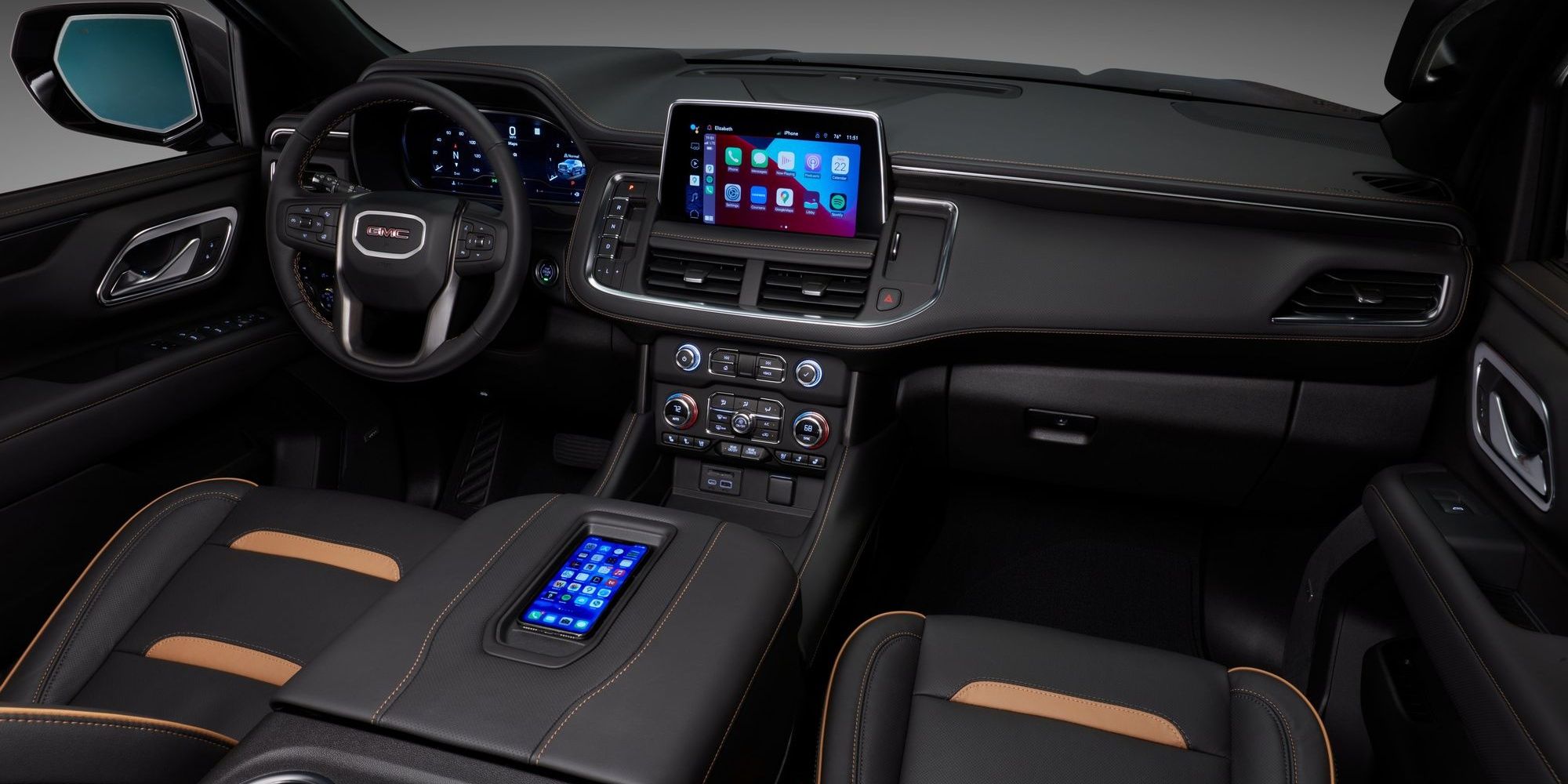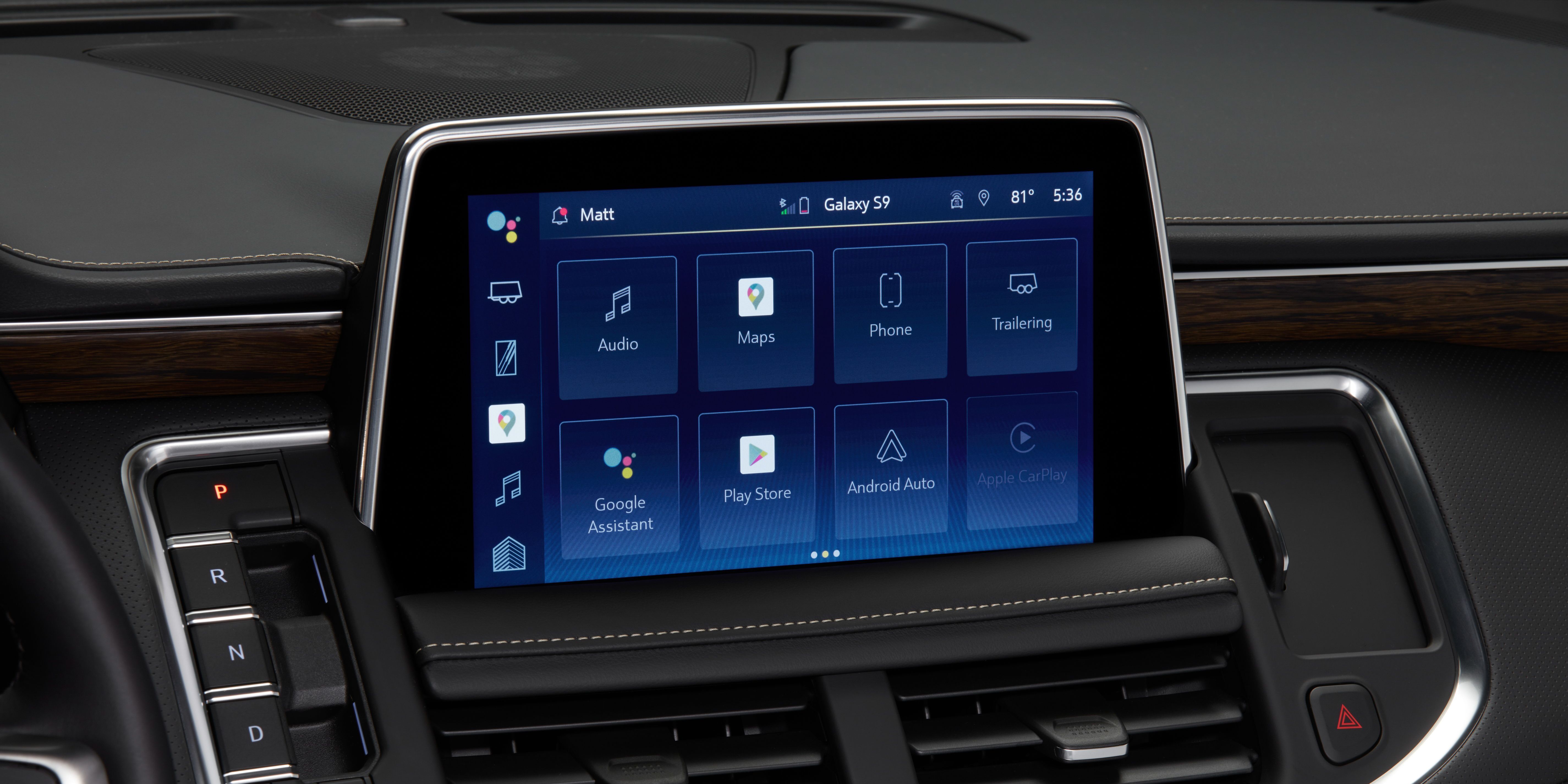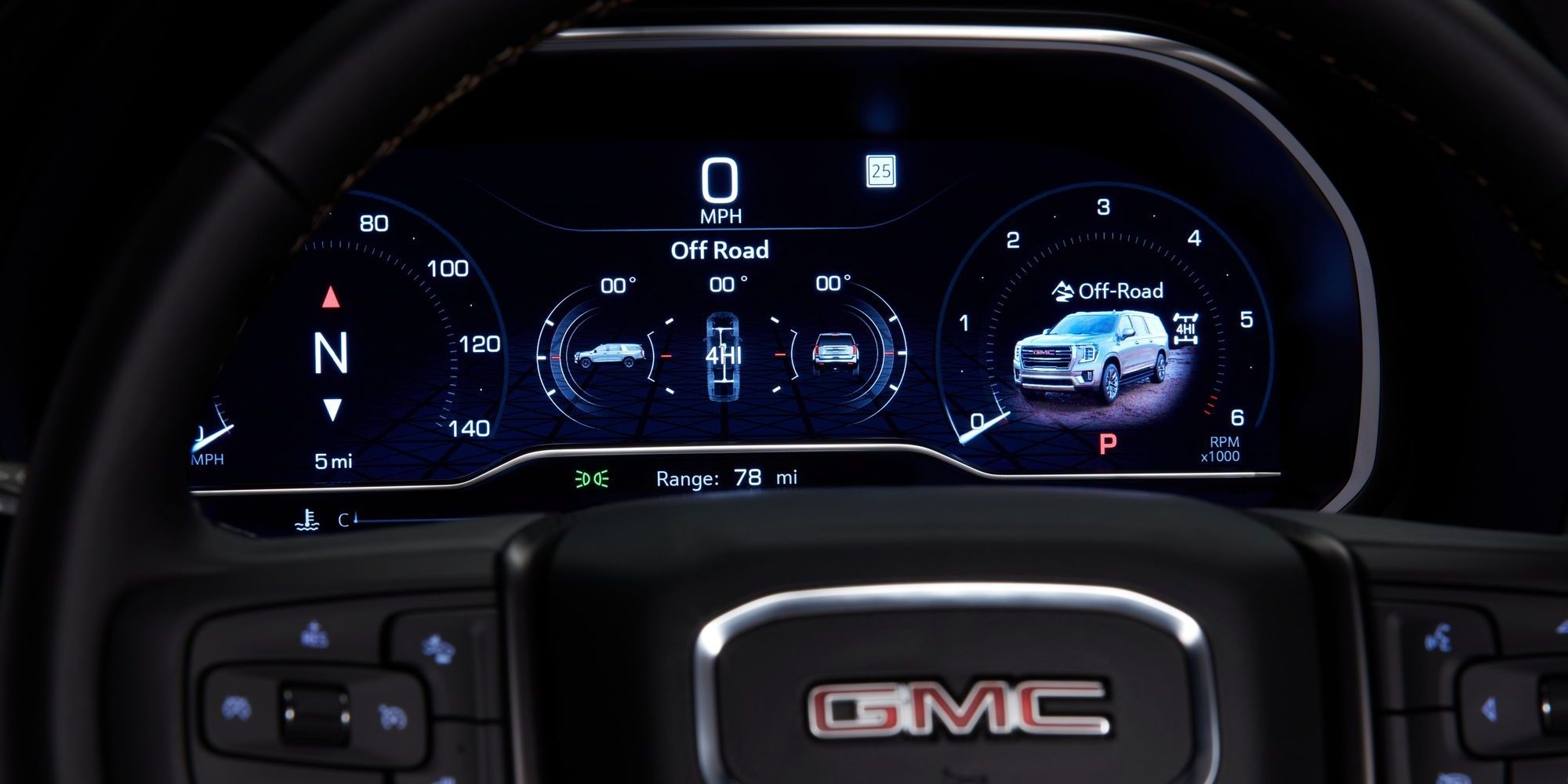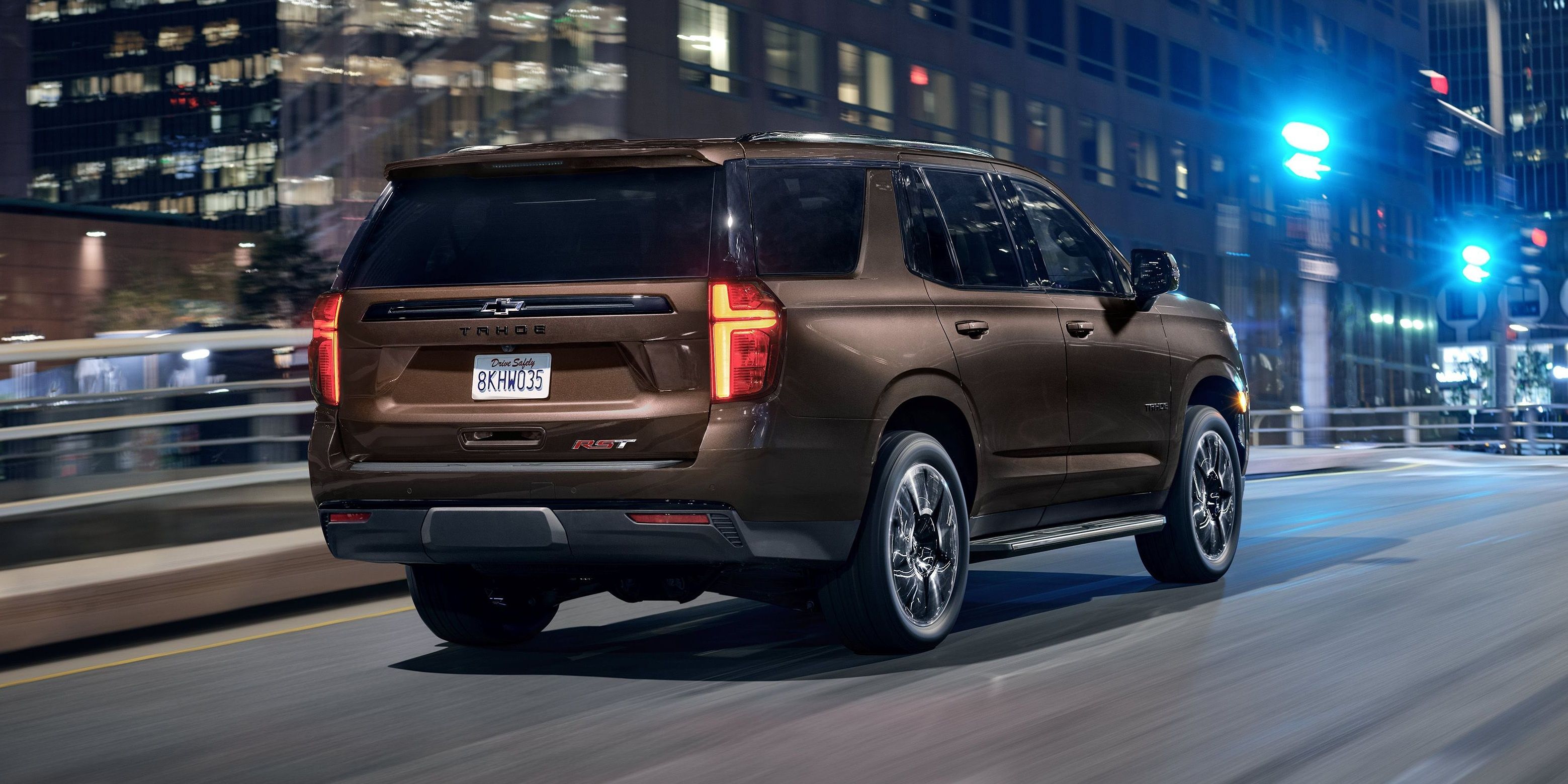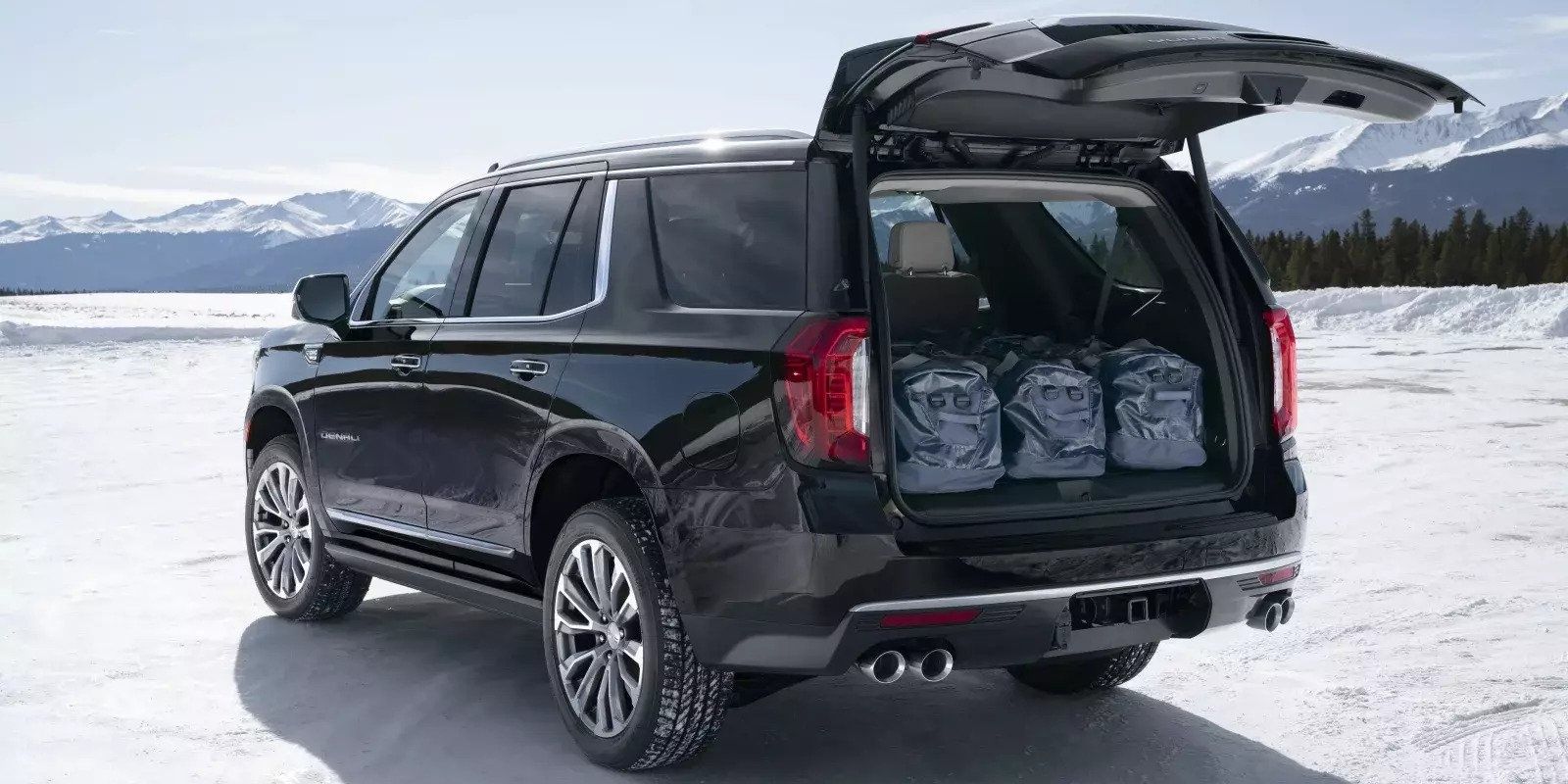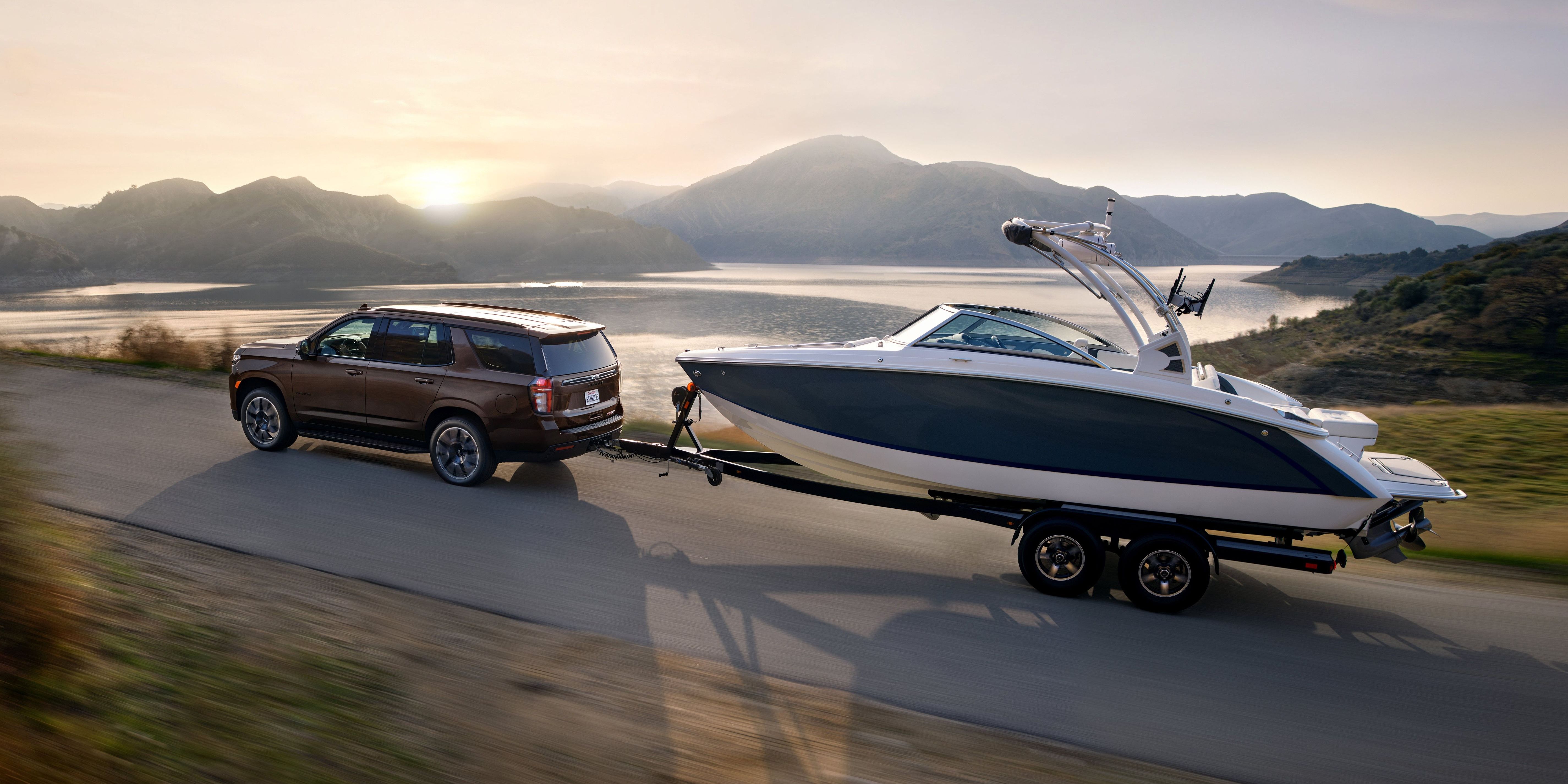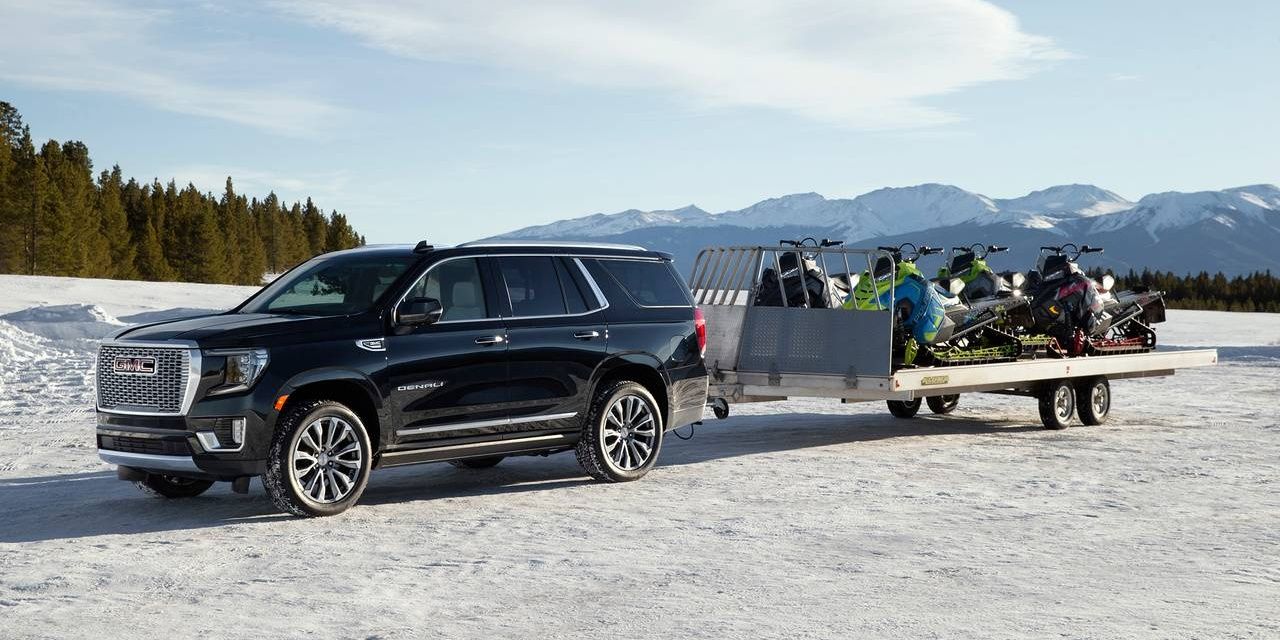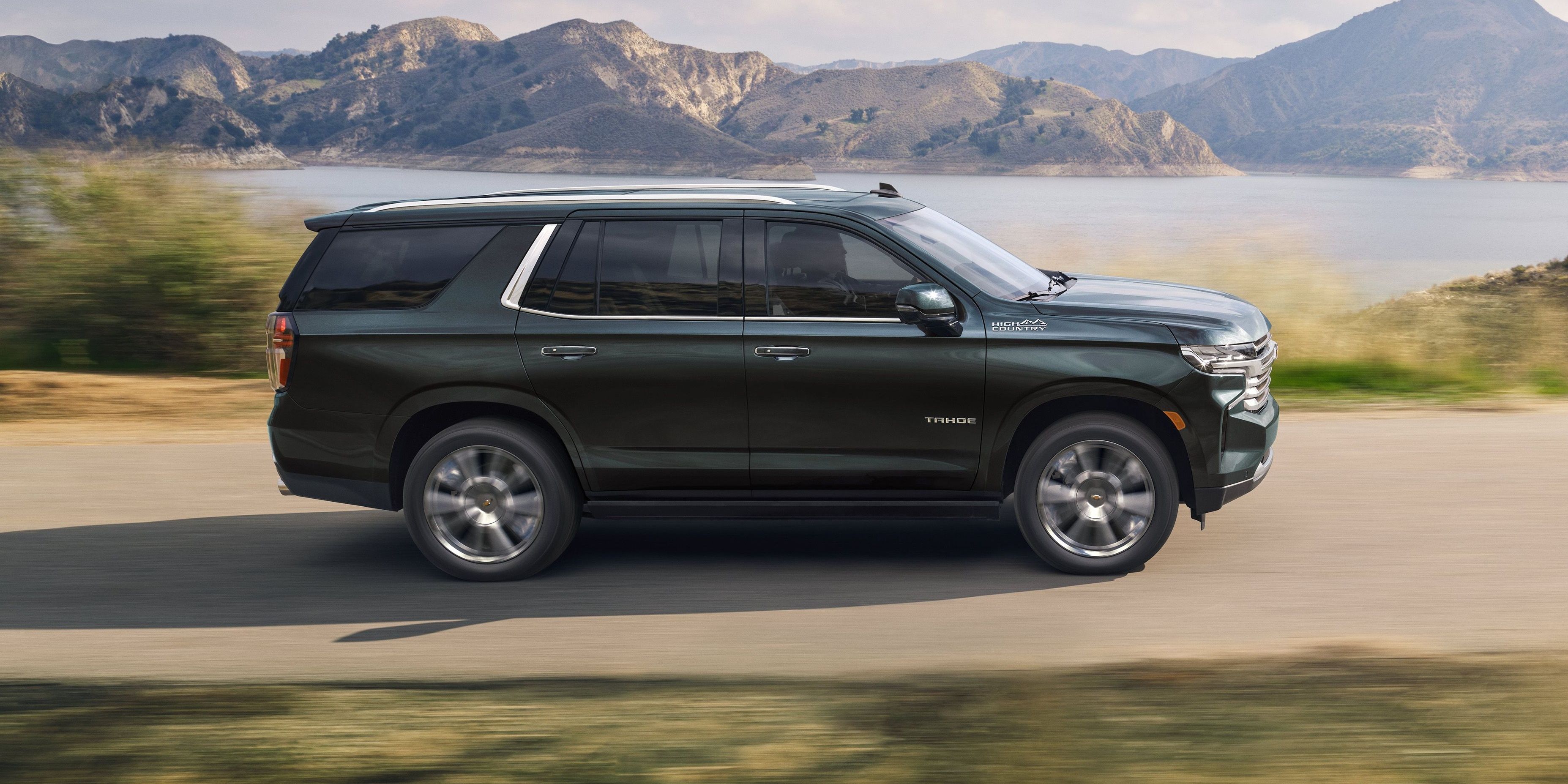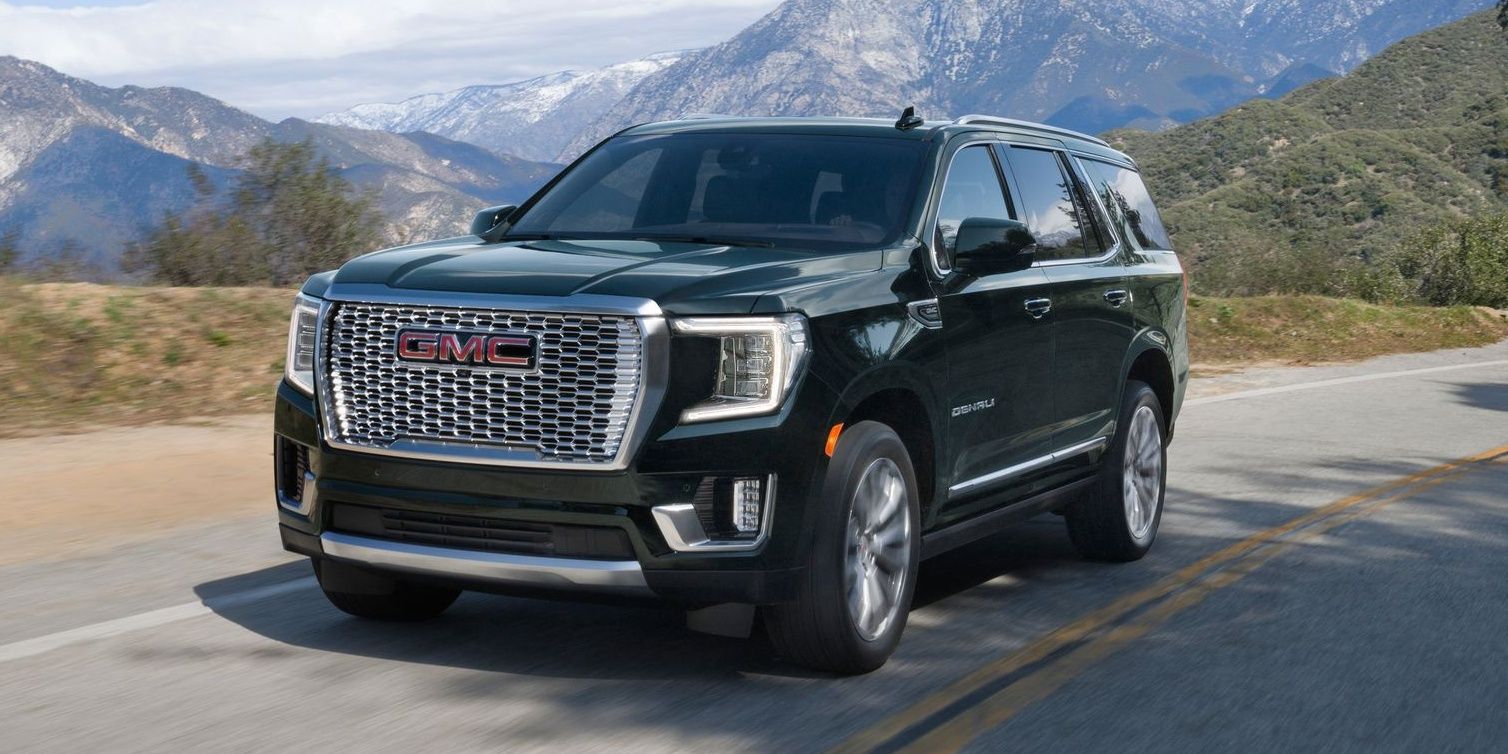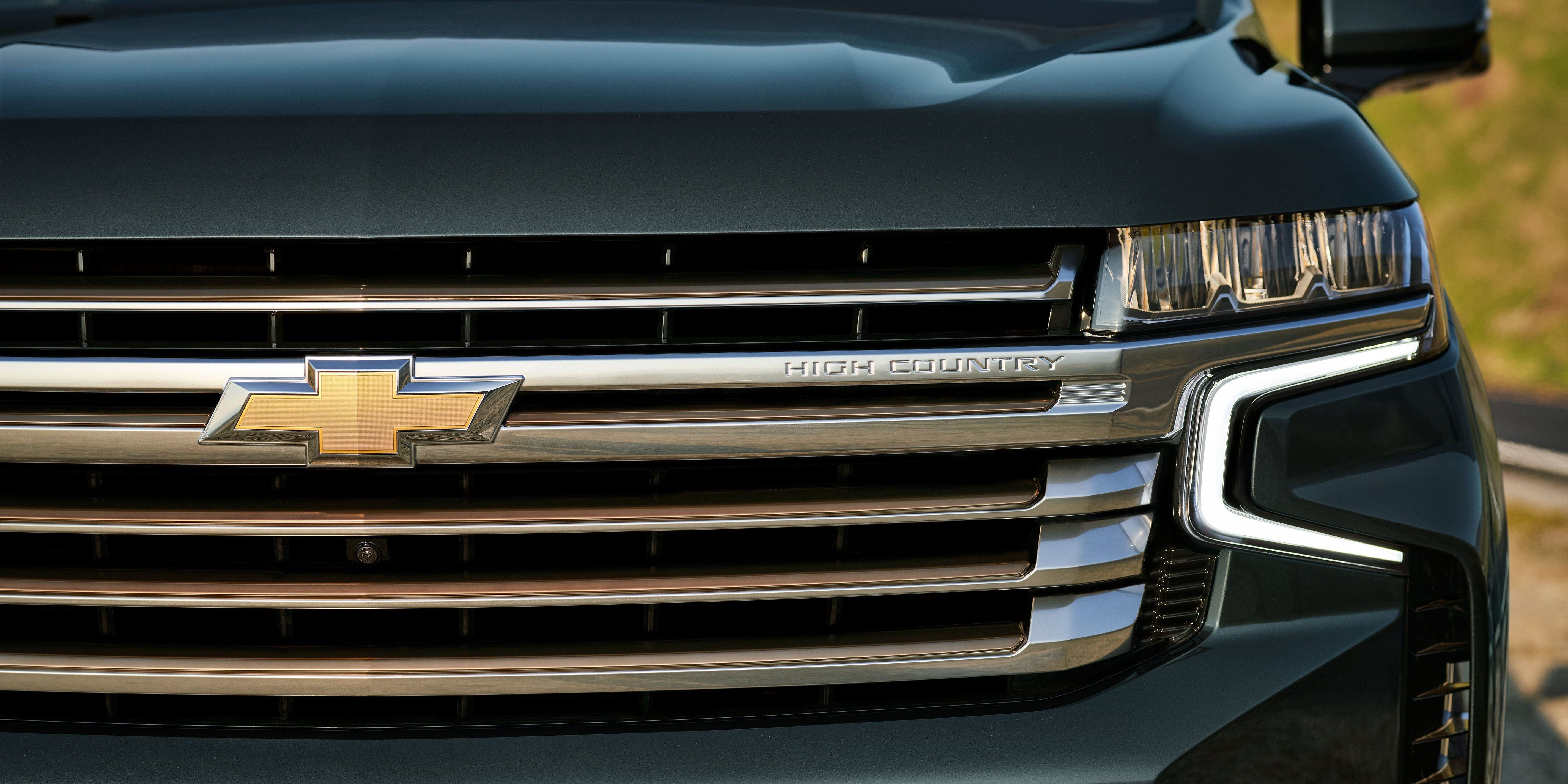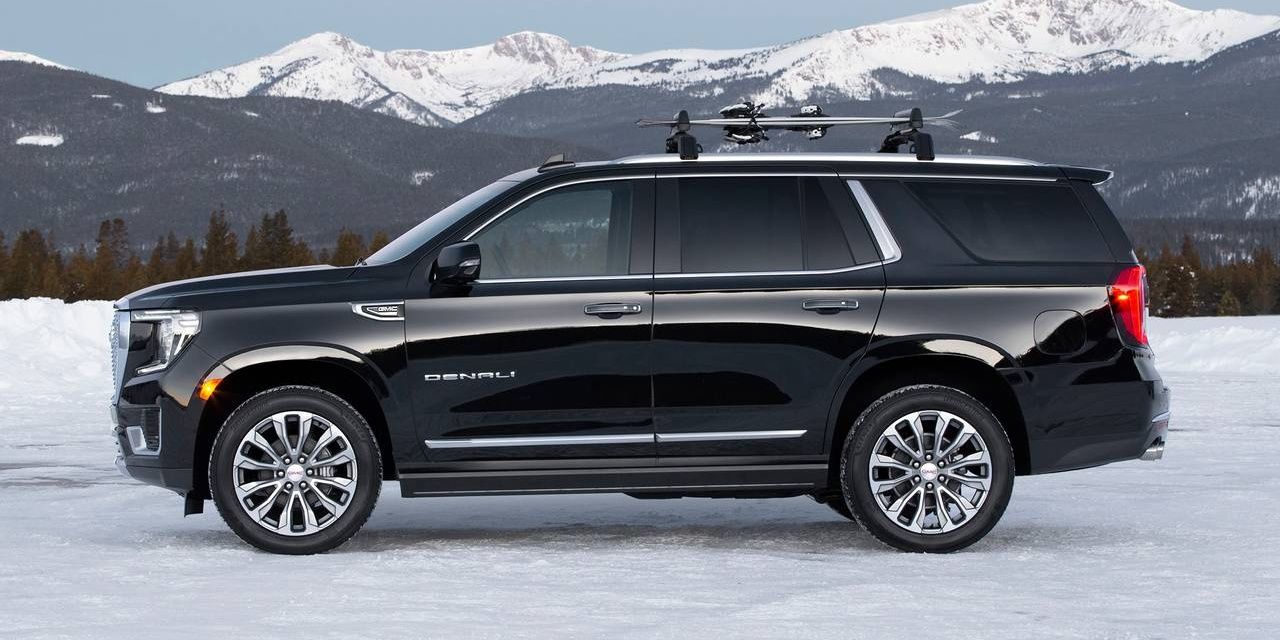Anyone in the market for a large SUV in 2022 will likely consider the Chevrolet Tahoe or GMC Yukon at some point in the buying process. They've been strong sellers in their segment for years now, beating out competition from Jeep, Ford, and Nissan. Most buyers will be aware that both the Tahoe and the Yukon share the same platform and many of the same parts, so it's easy to assume that both SUVs are largely identical apart from their differing badges.
Is that true? Well, not really, as there are a few key differences that mean some buyers will be better off going for one over the other. Even in 2022, both cars are still leading the field when it comes to the full-size SUV segment, but the subtle differences between the two mean it's important to pick carefully. Comparing the two cars across eight key areas should help buyers decide which one is right for them, so let's get right into it.
8 Power
There are several areas where the two cars are almost identical, and their powertrain selection is one of them. Both the Tahoe and the Yukon are offered with a choice of two gasoline V8s or a six-cylinder diesel engine.
The smaller 5.3L V8 makes a respectable 355 hp, and the larger 6.2L V8 makes 420 hp. Both of those engines are strong enough to tow trailers and small boats, but for maximum pulling power, it's best to go for the diesel option which makes an impressive 460 lb-ft of torque, despite being down on horsepower compared to the V8s.
7 Styling
Chevy's recent restyling of the Tahoe has been the subject of some controversy, as some people are fans of the new, brutish look and some can't stand it. Anyone who's in the latter camp should probably opt for the GMC, as its styling is relatively conservative apart from the huge grille which seems to be a feature on all large SUVs nowadays.
That's not to say the Chevy is ugly, in fact in a decade or two's time, its styling might well age better than the rather forgettable Yukon. Really, it's down to personal preference, along with badge loyalty of course.
6 Interior
Another area where the two trucks are very much neck and neck is in their interior designs. Both offer a comfortable cabin with room for up to eight occupants and plenty of space even in the second and third rows.
There's a variety of trims available in each truck that vary the materials and finishes used, but by and large, they all manage to strike a good balance between feeling premium and hard-wearing. Both interiors feature plenty of extra storage and cubbyholes to really maximize the usefulness of the space available.
5 Technology and Assistance
Both cars come well-equipped with convenience and assistance technology, with Apple CarPlay, Android Auto, and a WiFi hotspot included as standard. All Tahoe trims come with a standard 10.2" center-mounted touchscreen which acts as the primary control point for the infotainment system.
Standard Yukon trims come with an almost identical setup but pay a little extra for the Denali trim and the touchscreen is integrated into the center console for a more streamlined look. GMC's Pro Safety Plus is also offered on the Yukon which adds extra safety features including a suite of 13 cameras and ultrasonic hazard detection sensors.
4 Cargo Space
The whole point of buying a large SUV is to be able to carry as much as possible, whether that's cargo, passengers, or a mix of both. The Chevy comes with a very respectable 123 cubic feet of space with the second and third rows folded down, but it's the Yukon that takes the crown here.
In XL trim, it offers a huge 145 cubic feet of space with the seats folded, putting it right at the top of its class for capacity. That's considerably more than rivals like the Ford Expedition Max, which only has 122 cubic feet of space, less than even the standard-wheelbase Yukon.
3 Towing
As mentioned earlier, both the Yukon and the Tahoe come with the same powertrain options, so unsurprisingly their maximum towing capacity is identical. Both are capable of pulling a maximum of 8,400 lbs, or 3,810 kg.
This is one area where the Tahoe/Yukon twins are beaten by the competition, as the Jeep Wagoneer takes the towing crown with a maximum 10,000 lbs capacity. Even the Nissan Armada can tow marginally more, with a capacity of 8,500 lbs.
2 Economy
A large SUV like the Tahoe or the Yukon is never going to be the most fuel-efficient way of transport, but even so, both cars claim reasonable EPA ratings for their class. The most fuel-efficient option is the six-cylinder diesel Tahoe, although only by a fraction.
In the Yukon, the diesel is capable of achieving 21 mpg city and 27 mpg highway, but in the Tahoe, it's marginally more efficient with a rating of 21 mpg city and 28 mpg highway. Neither of the V8 options is particularly eco-friendly, barely scraping 20 mpg even on the highway.
1 Price
There's a large range of trims available for each SUV that drastically affect its price, although it's probably worth splashing out on extra features to get the most out of each car. The Tahoe starts at $51,845 for a base-spec LS model, but that rises to $53,295 for a base-spec Yukon.
The Yukon also has the pricier top trim of the two, with fully-equipped Denali models costing $74,295. In comparison, the Tahoe offers a very similar level of luxury for slightly less, at $72,095. Their prices, like with many other aspects of the two SUVs, are broadly similar, but take a closer look at the smaller differences, and most buyers will be able to pick a clear favorite. Both the Yukon and the Tahoe are objectively a good choice for a full-size SUV, so no matter which one buyers pick, they're likely to be very satisfied with their purchase.

